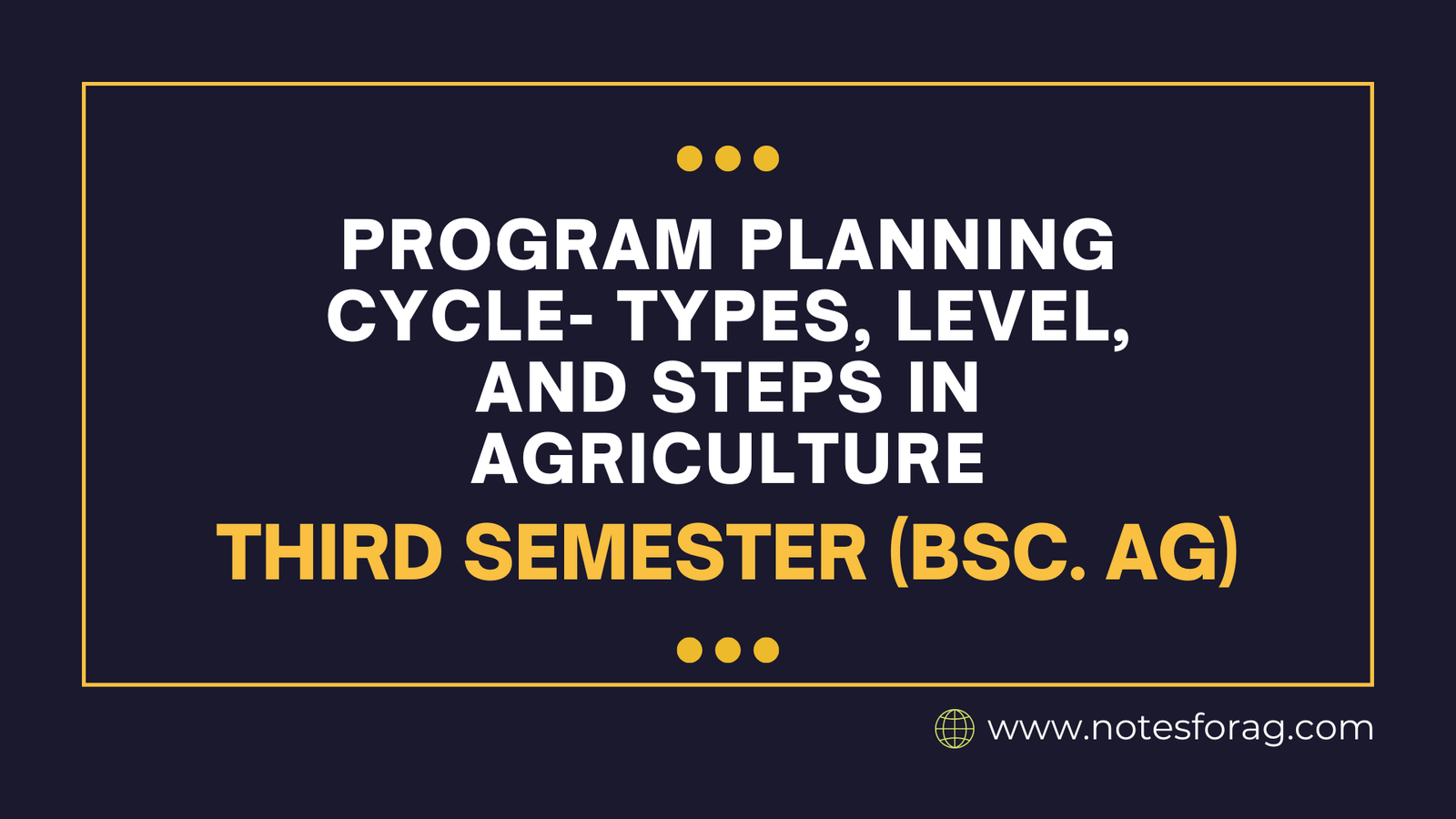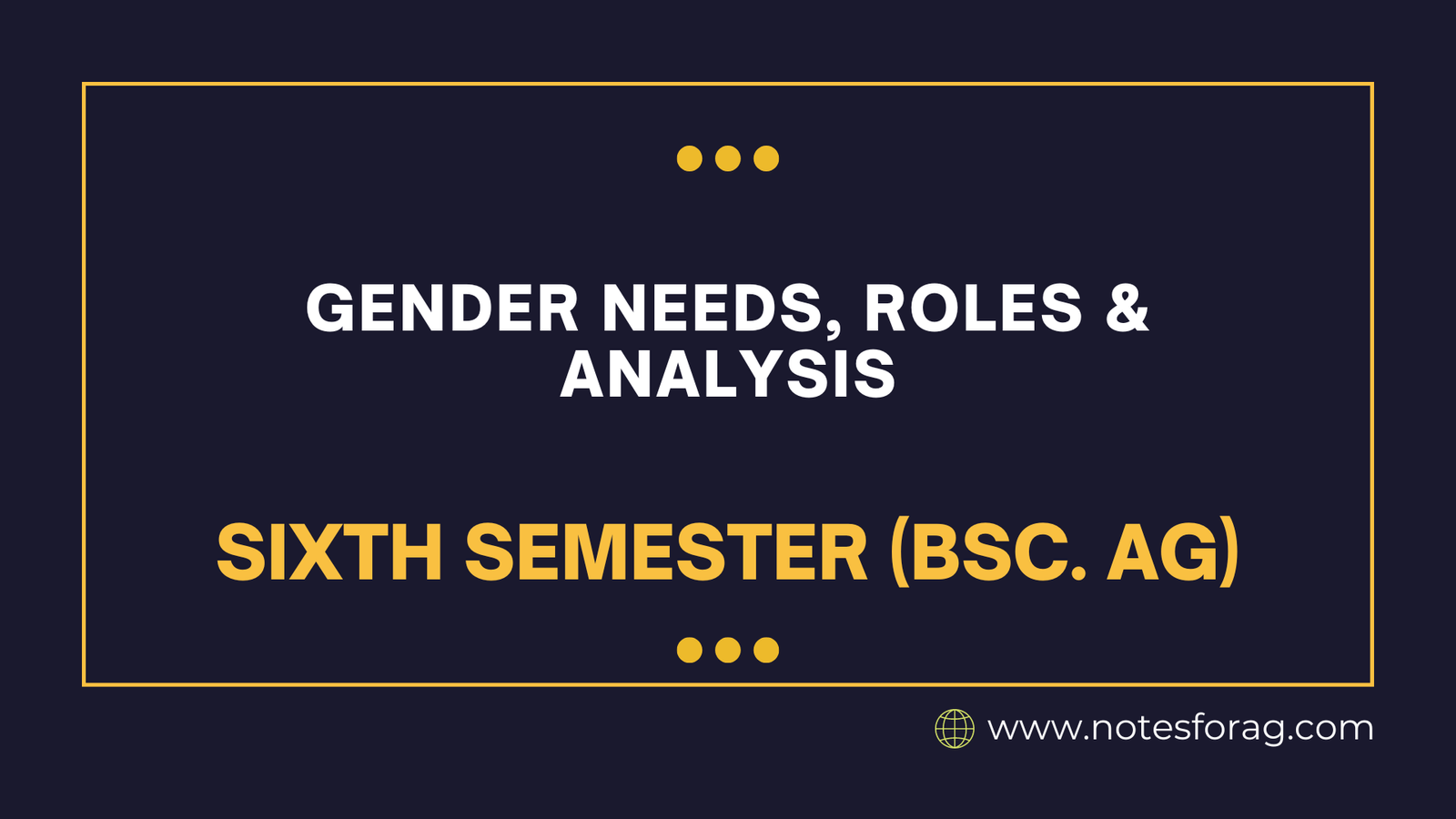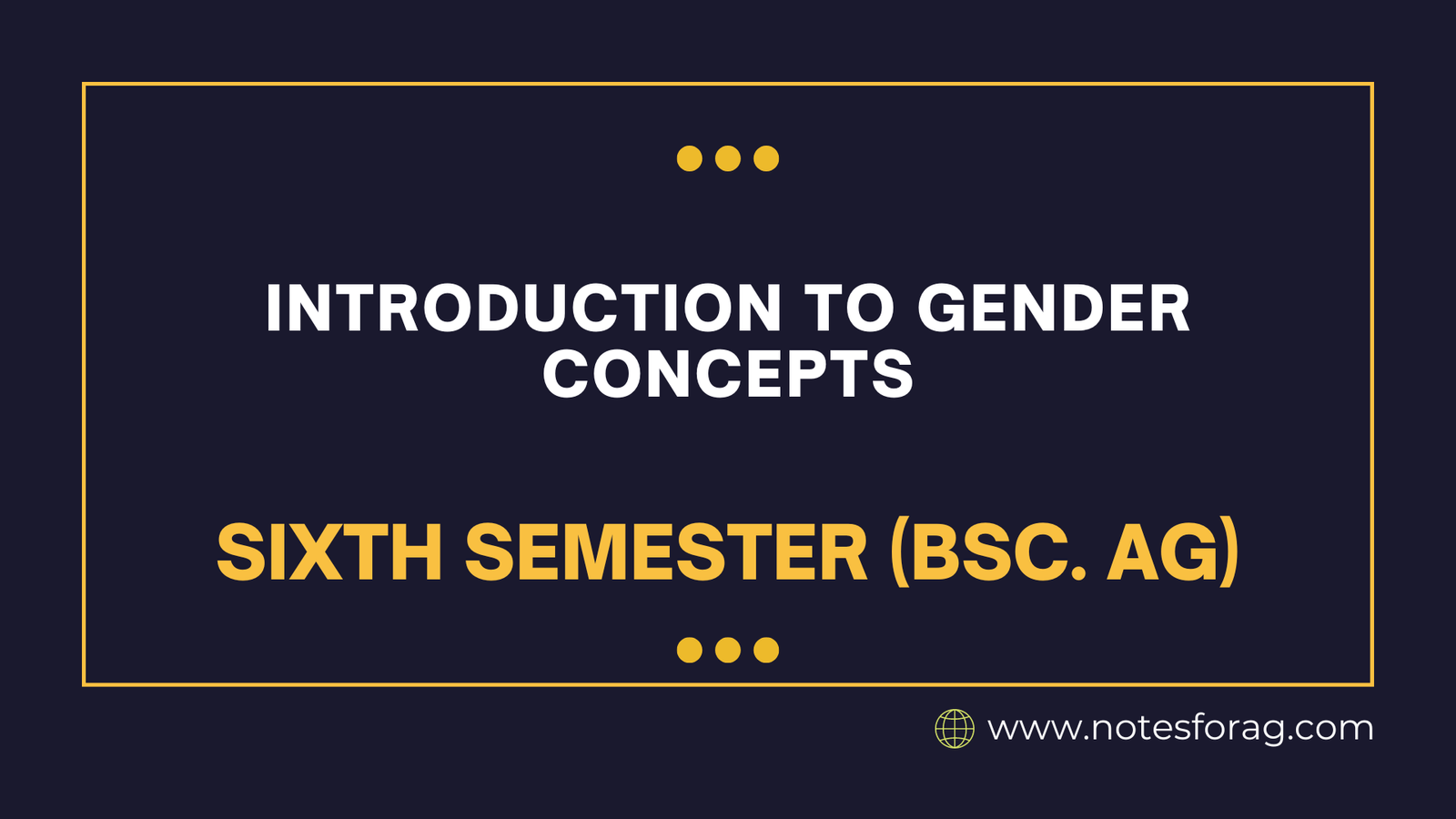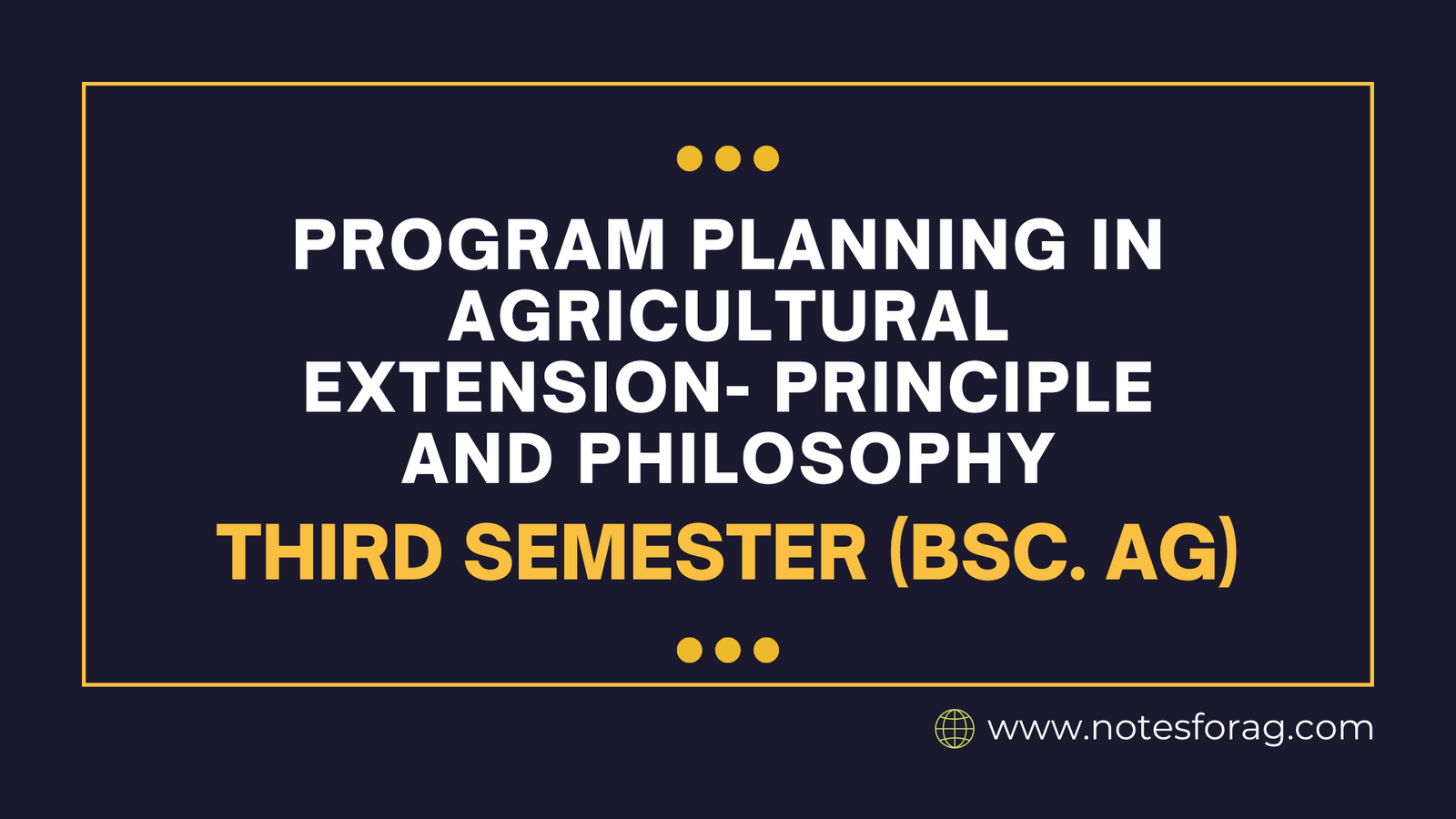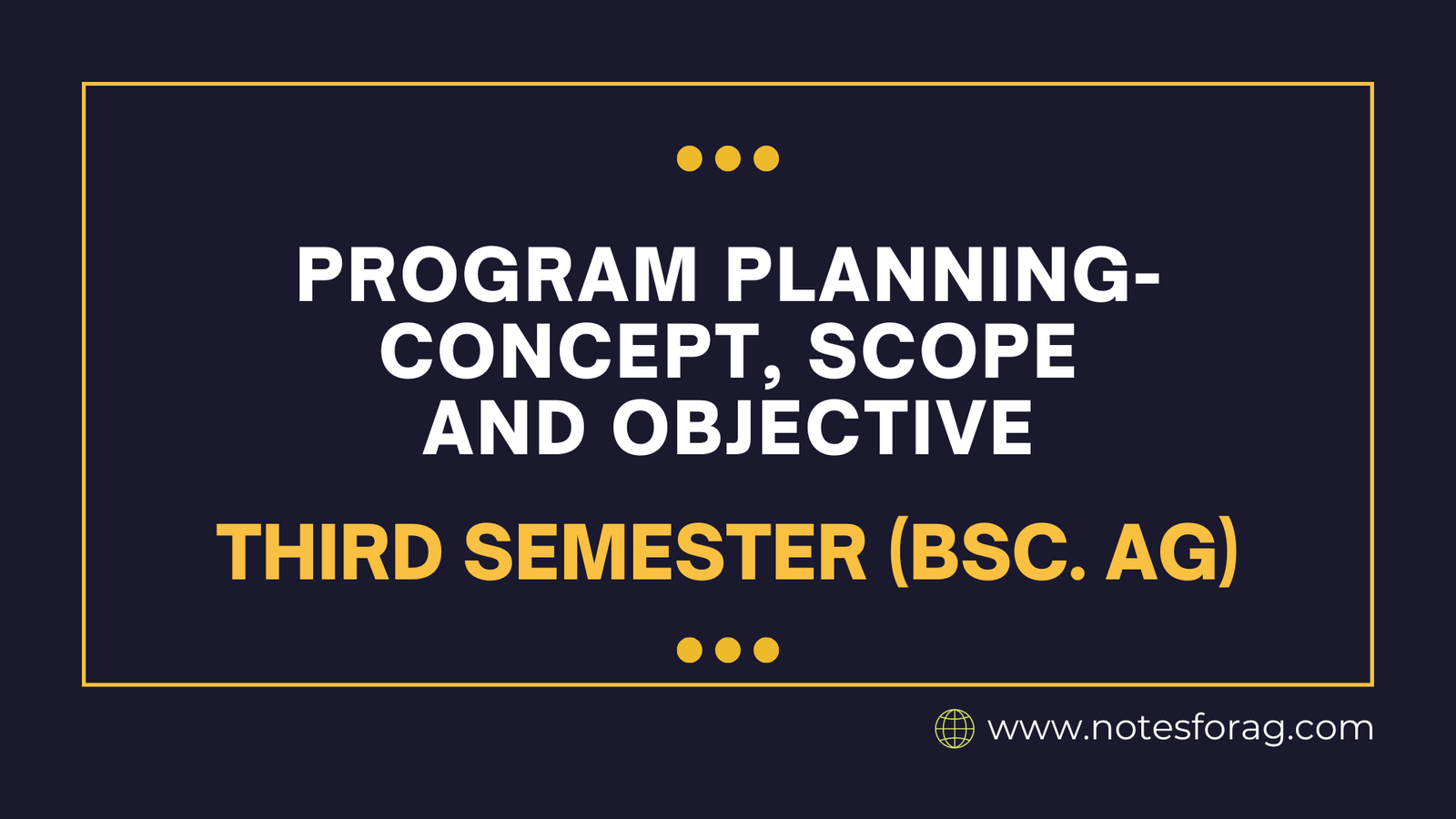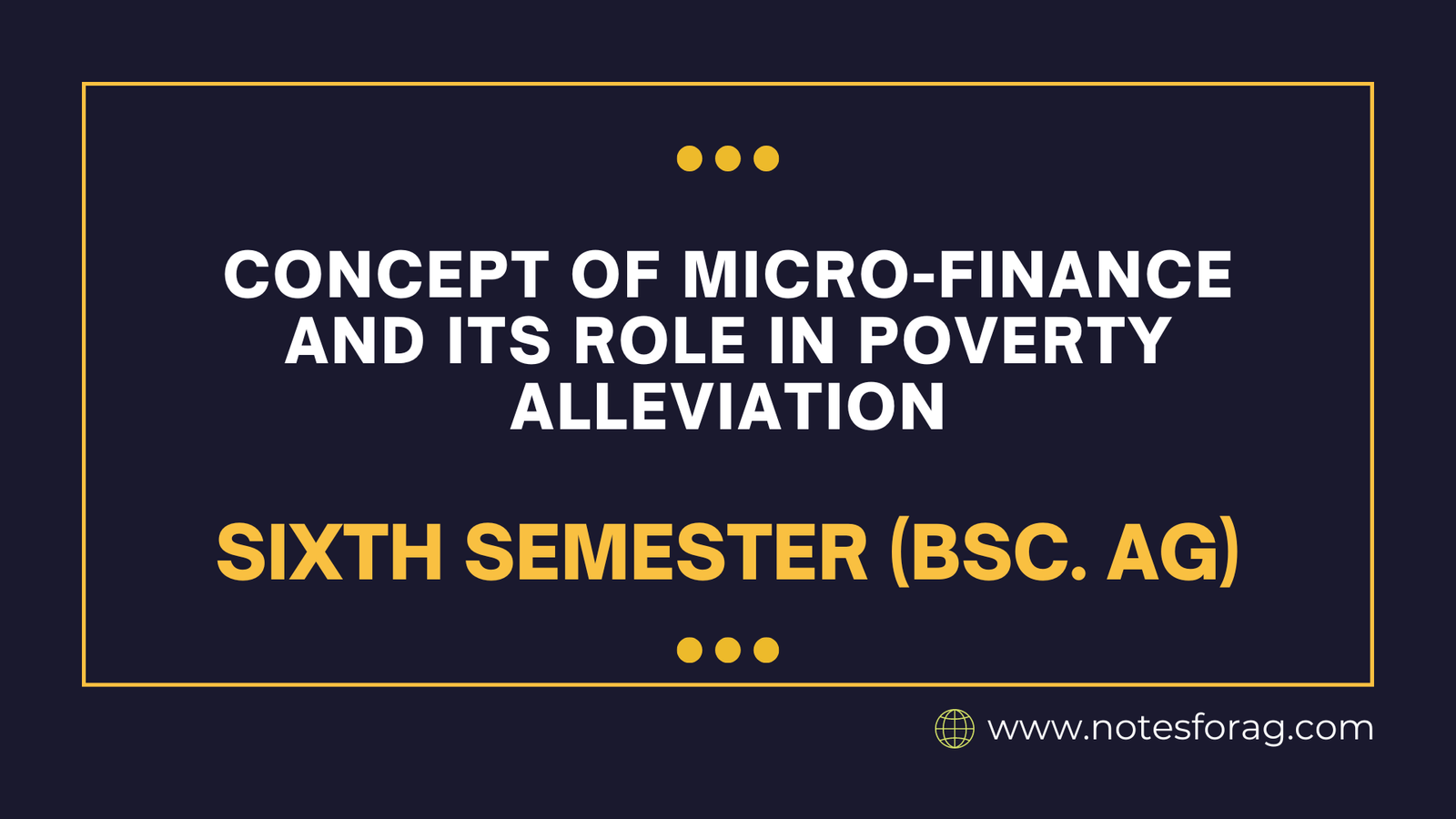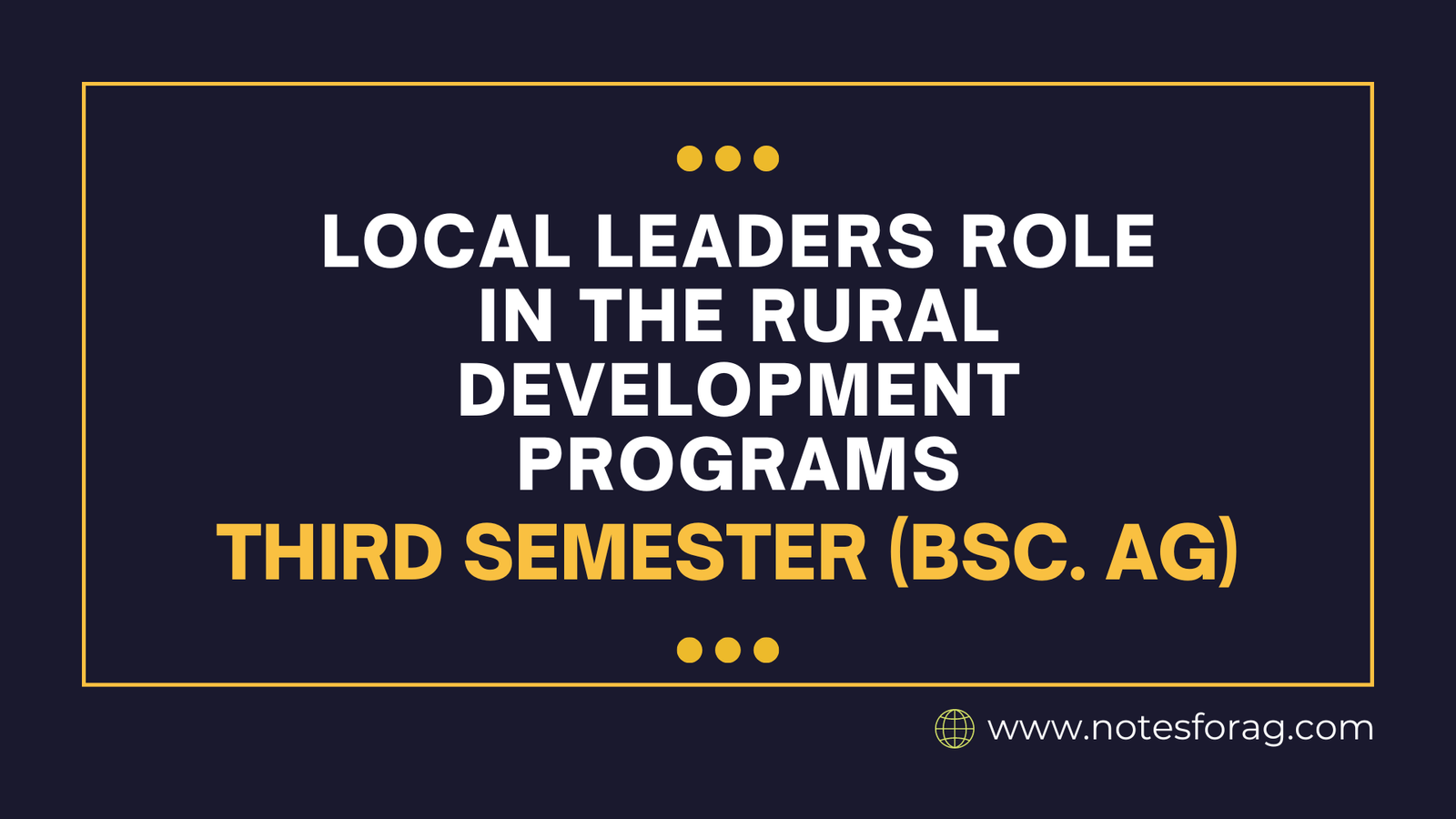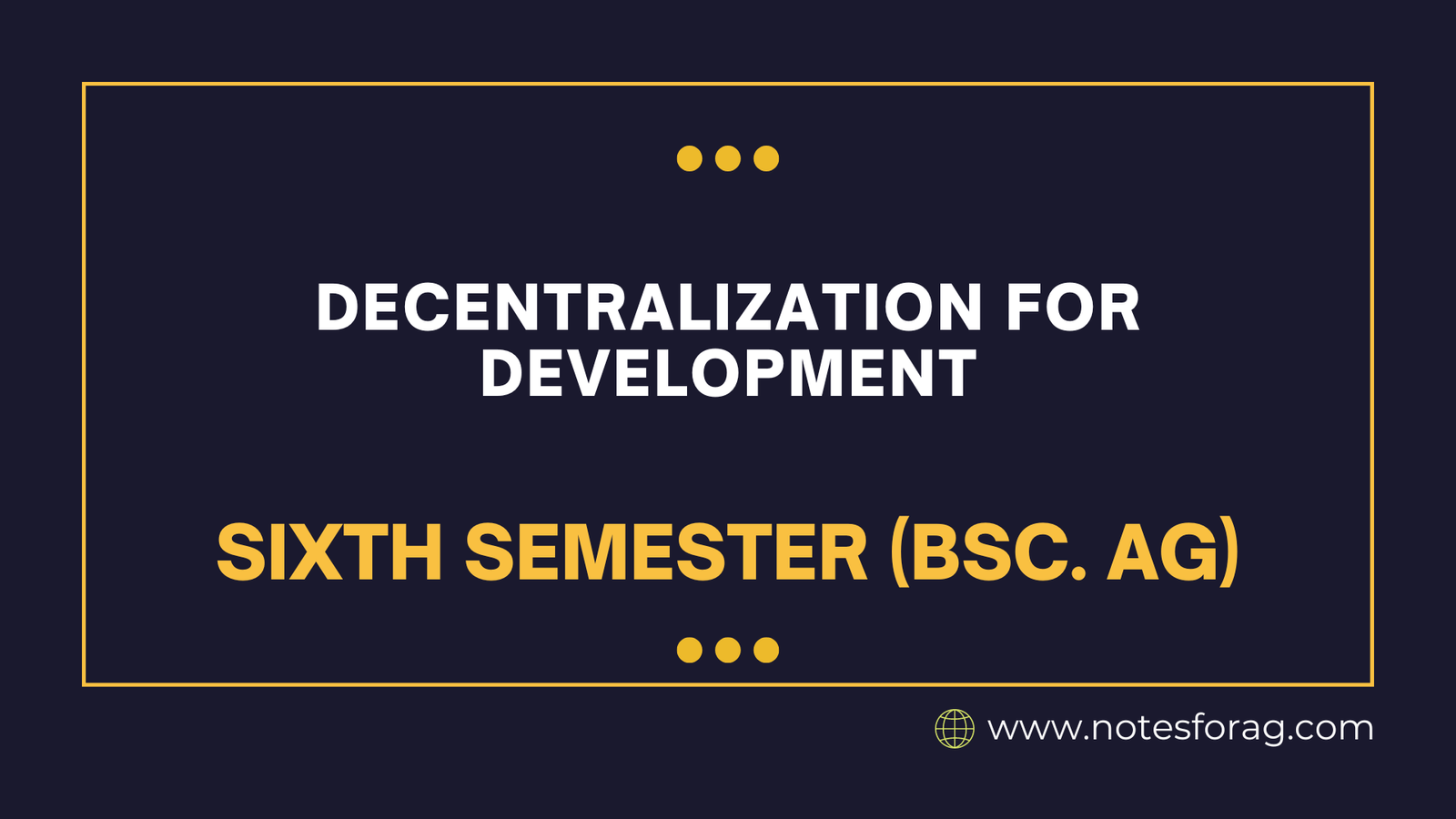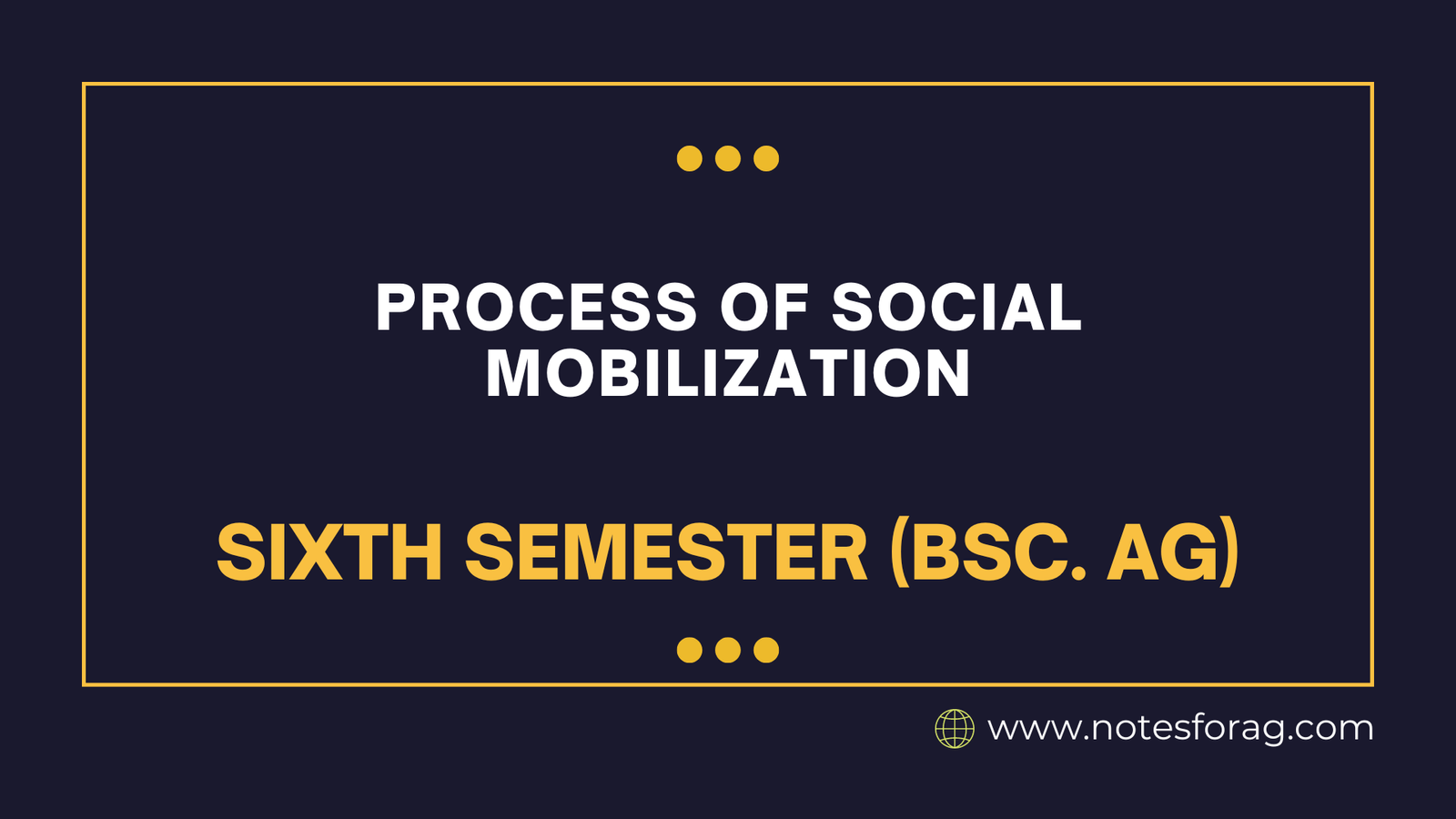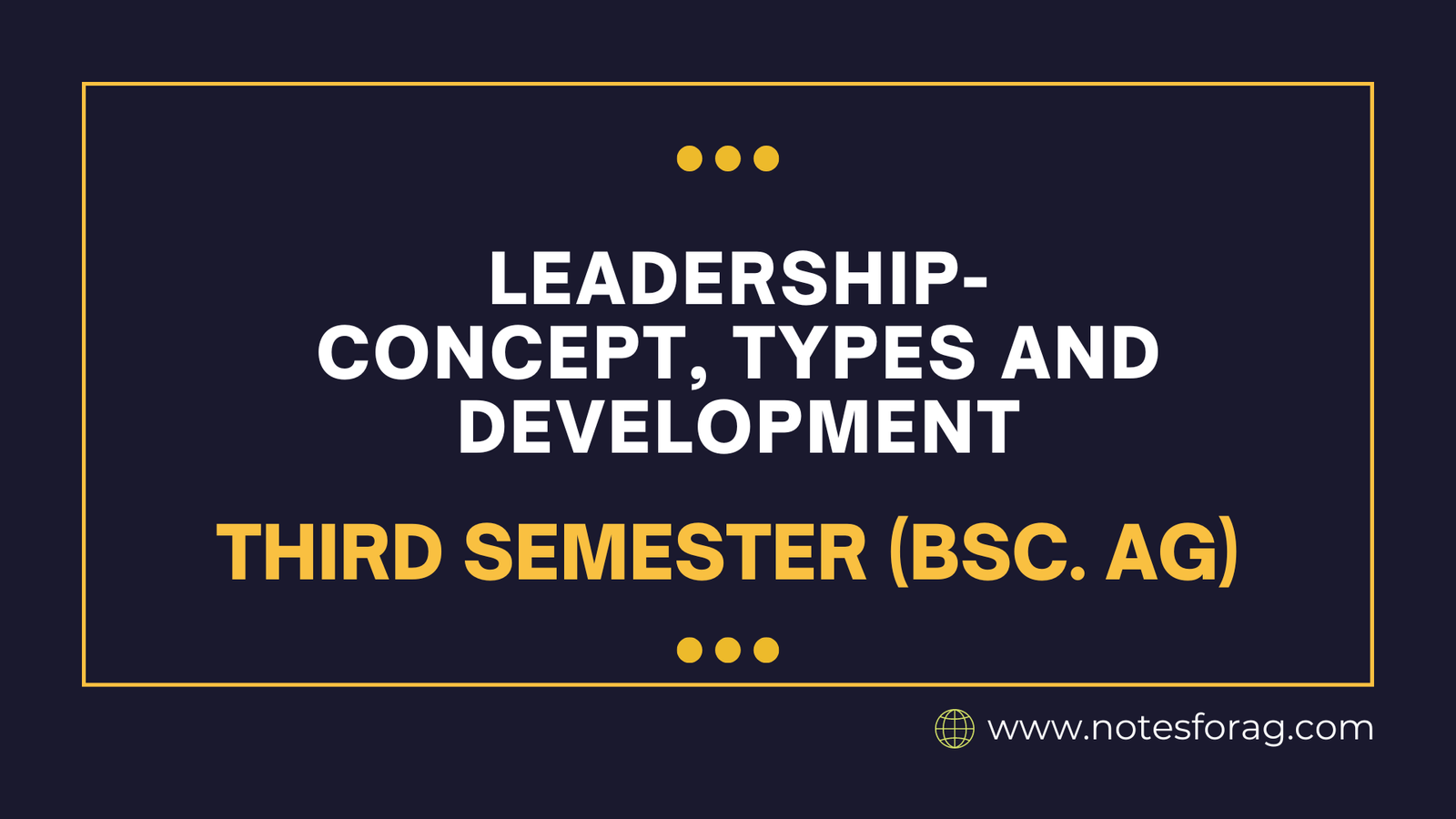Program Planning Cycle- Types, level, and steps in agriculture
Agriculture program planning cycle is a systematic strategy to meeting the needs of farmers and rural communities. It employs a variety of planning methods, including top-down, bottom-up, and participatory techniques, and operates at multiple levels, ranging from national to municipal to individual farms. The program planning cycle consists of several essential steps: needs assessment, problem … Read more

